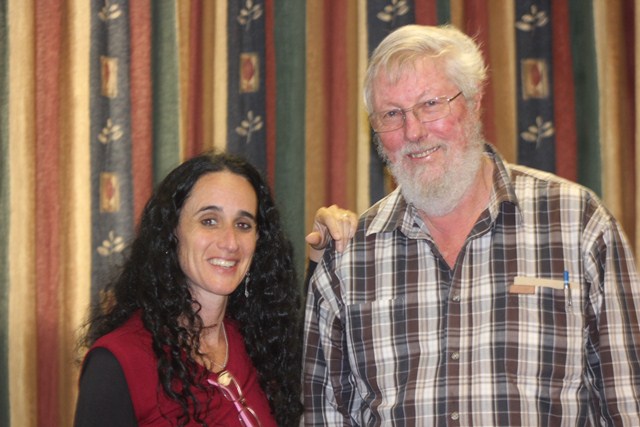Emeritus Professor, Peter Robinson, provided a fascinating presentation at the 12th seminar of the Urban Futures Centre (UFC@DUT) on 24 July 2014. The focus of the seminar was on the need for urban planning and development to be underpinned by strategic thinking and long-term models that take account of the complexities of urban spaces. Interestingly, Prof Robinson pointed out that strategic thinking is not embedded in the thinking or the literature of town planning and urban development.
This, naturally, has consequences for urban development projects. He discussed some of these impacts by exploring urban development projects in the city of Durban. Professor Peter Robinson’s career has spanned professional and academic fields, and he provided an extremely insightful presentation on the applicability of a range of strategic planning methods for analysing urban development issues and formulating creative responses and plans.
Professor Robinson said it was important for development planners to device plans they can use to unravel the complex issues they are faced with. He defined strategic decisions as long term, large scale and with consequences that are profound. Strategic thinking, he argued, is incredibly important if planners want to reduce uncertainty and provide models that are sustainable and are accessible to urban dwellers. Urban development choices have to be strategic, and account for both long-term and short term outcomes.
According to Professor Robinson, “As development professionals we are constantly under pressure to make choices and many of those choices have strategic significance. We have got a very elaborate system of planning in place and yet layers and layers of plans prove to be ineffective in dealing with the challenges. New and more strategic ways of ‘doing’ development planning have to be considered,” said Robinson.
Professor Monique Marks, who heads up the UFC at DUT, said Prof Robinson’s presentation fits directly with what the UFC is trying to achieve. “We are trying, in the Urban Future Centre, to think differently about what cities should and could look like. The aim of the centre is not to be policy driven but to be more governed by imagination and thinking outside the boxes whether those boxes are disciplinary or they are constrained by officialdom and bureaucracy,” she said.
The seminar was well attended. Members of staff and students from a range of disciplines engaged in robust debate and discussion with Prof Robinson. Participants from outside of DUT also participated in the seminar, including academics from UKZN, city officials, and Durban residents.
Postgraduate students who also attended the seminars stated that they were of great importance to them as the seminars assisted them with their professional thinking and with the transition to the practical world of the built in environment and urban planning.
Next week’s seminar will be presented by one of Durban’s most well-known architects, Derek Van Heerden. He will be speaking on the following topic: “3 Schools – Recent work by East Coast Architects in rural and peri-urban SA with emphasis on creating effective teaching and learning space through ‘bottom up’ processes”.
– Gift Nyamapfene
Pictured: DUT Professor Monique Marks with Professor Peter Robinson, at the Urban Futures Centre at Steve Biko campus.


